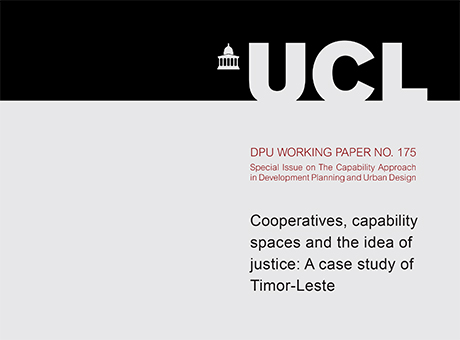DPU Working Paper - No. 175
Cooperatives, capability spaces and the idea of justice: A case study of Timor-Leste

29 May 2015
Author: Teresa Maria Fernandes Cerqueira Nunes
Publication Date: May 2015
ISSN: 1474-3280
In the current economic climate, there has been a renewed awareness of the role of cooperatives as a means to generate opportunities for transition out of poverty. Cooperatives help to bring people together, to foster their participation in economic and political life. They can generate economic, human and social capital, and promote a more just form of development. The purpose of this paper is to consider how cooperatives as collective enterprises encourage the expansion of human capabilities (individual and collective) in fragile environments. Drawing on three distinct case studies in Timor-Leste, this paper adopts elements of the Capability Approach, as defined by Martha Nussbaum, and addresses links between collective action and the potential for reducing societal fragility. It is argued that a cooperative, as a social structure, can play a role in reducing societal fragility. However, it is pertinent to understand the space in which the exercise of individual and collective agency takes place. In fact, it is through the exercise of agency and freedom of choice that individuals and groups of people can contribute to the strengthening of social cohesion. To empower these social structures and recognise their rights is a development objective that has direct impacts in societal fragility.
 Close
Close

